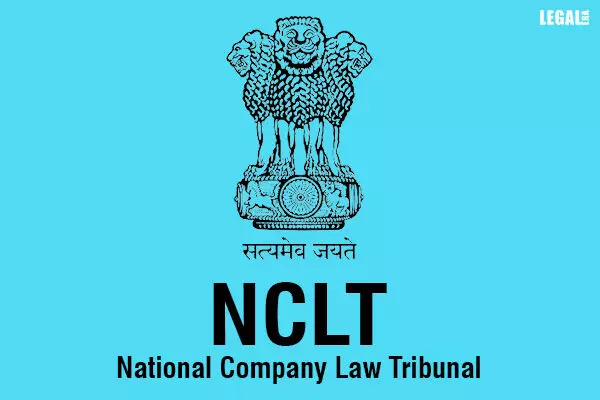- Home
- News
- Articles+
- Aerospace
- Agriculture
- Alternate Dispute Resolution
- Banking and Finance
- Bankruptcy
- Book Review
- Bribery & Corruption
- Commercial Litigation
- Competition Law
- Conference Reports
- Consumer Products
- Contract
- Corporate Governance
- Corporate Law
- Covid-19
- Cryptocurrency
- Cybersecurity
- Data Protection
- Defence
- Digital Economy
- E-commerce
- Employment Law
- Energy and Natural Resources
- Entertainment and Sports Law
- Environmental Law
- FDI
- Food and Beverage
- Health Care
- IBC Diaries
- Insurance Law
- Intellectual Property
- International Law
- Know the Law
- Labour Laws
- Litigation
- Litigation Funding
- Manufacturing
- Mergers & Acquisitions
- NFTs
- Privacy
- Private Equity
- Project Finance
- Real Estate
- Risk and Compliance
- Technology Media and Telecom
- Tributes
- Zoom In
- Take On Board
- In Focus
- Law & Policy and Regulation
- IP & Tech Era
- Viewpoint
- Arbitration & Mediation
- Tax
- Student Corner
- AI
- ESG
- Gaming
- Inclusion & Diversity
- Law Firms
- In-House
- Rankings
- E-Magazine
- Legal Era TV
- Events
- News
- Articles
- Aerospace
- Agriculture
- Alternate Dispute Resolution
- Banking and Finance
- Bankruptcy
- Book Review
- Bribery & Corruption
- Commercial Litigation
- Competition Law
- Conference Reports
- Consumer Products
- Contract
- Corporate Governance
- Corporate Law
- Covid-19
- Cryptocurrency
- Cybersecurity
- Data Protection
- Defence
- Digital Economy
- E-commerce
- Employment Law
- Energy and Natural Resources
- Entertainment and Sports Law
- Environmental Law
- FDI
- Food and Beverage
- Health Care
- IBC Diaries
- Insurance Law
- Intellectual Property
- International Law
- Know the Law
- Labour Laws
- Litigation
- Litigation Funding
- Manufacturing
- Mergers & Acquisitions
- NFTs
- Privacy
- Private Equity
- Project Finance
- Real Estate
- Risk and Compliance
- Technology Media and Telecom
- Tributes
- Zoom In
- Take On Board
- In Focus
- Law & Policy and Regulation
- IP & Tech Era
- Viewpoint
- Arbitration & Mediation
- Tax
- Student Corner
- AI
- ESG
- Gaming
- Inclusion & Diversity
- Law Firms
- In-House
- Rankings
- E-Magazine
- Legal Era TV
- Events
NCLT Imposes Fine on Operational Creditor for Misleading Court to Evade Prohibition under IBC

NCLT Imposes Fine on Operational Creditor for Misleading Court to Evade Prohibition under IBC
Oswal Minerals Limited had filed an application seeking action against Vidhi Minerals & Alloys
The Mumbai bench of the National Company Law Tribunal (NCLT) has imposed a fine of Rs. 25,000 on an Operational Creditor who disregarded Section 10A of the Insolvency and Bankruptcy Code (IBC), 2016, by seeking initiation of the Corporate Insolvency Resolution Process (CIRP) for default occurred within the prohibited period and deliberately misleading the Court by stating incorrect facts.
In the Oswal Minerals Limited vs. Vidhi Minerals & Alloys Pvt. Ltd case, the Coram of Lakshmi Gurung (Judicial Member) and Charanjeet Singh Gulati (Technical Member), while adjudicating a petition, remarked, “Despite the clear language of the Section 10A of IBC, the Operational Creditor sought to initiate CIRP against the Corporate Debtor in clear disregard to IBC, and by mentioning misleading facts in Part-IV of the petition.”
It added, “At Point No.2 of Part IV, despite mentioning that the Corporate Debtor issued various purchase orders dated 08.09.2020, 02.10.2020, 12.10.2020 and 19.10.2020, the Operational Creditor mentioned that ‘several invoices were raised from August 2020 onwards till September 2021. The attempt of the Operational Creditor in mentioning incorrect facts is an attempt to take undue advantage of the proceedings.”
Oswal Minerals Limited (Operational Creditor) filed an application under Section 9 of the IBC seeking initiation of CIRP against Vidhi Minerals & Alloys Pvt. Ltd (Corporate Debtor) for an alleged debt of Rs.3,14,94,938. The invoices were raised between 24.09.2020 and 03.11.2020.
Section 10A of IBC prohibits initiation of CIRP in defaults occurring between 25.03.2020 and 25.03.2021. The provision specifically bars creditors from filing any application seeking CIRP by stating that “no application shall ever be filed for the initiation of CIRP of a Corporate Debtor for default occurring during the said period.”
The tribunal noted that the Operational Creditor in Part IV of the petition stated that invoices were raised from August 2020 to September 2021. However, those were raised within the prohibited period. Hence, the Operational Creditor disregarded Section 10A and misled the Court.
The NCLAT held, “The facts mentioned hereinabove clearly show that all invoices were raised before 03.11.2020. Only two debit notes of miniscule amount were issued on 31.03.2021 and 30.09.2021 of Rs.10,125 and Rs.4527, respectively.”
Thus, the bench imposed a penalty of Rs.25,000 on the Operational Creditor for stating incorrect facts and taking undue advantage of IBC proceedings. While dismissing the petition, it directed the Operational Creditor to pay the amount to the Bharat Kosh within two weeks.



